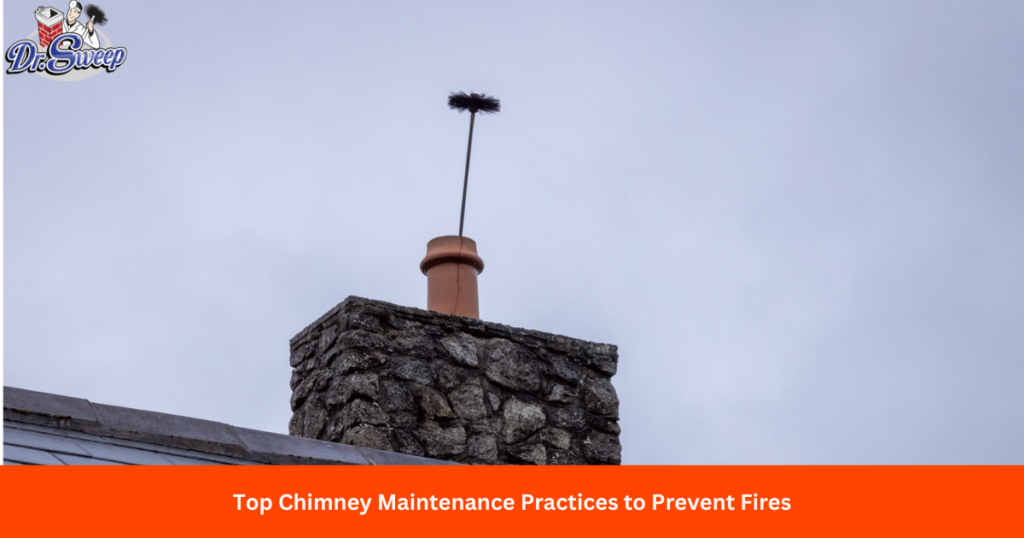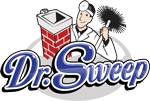
Chimney maintenance is a crucial aspect of home safety that often goes overlooked. Regular upkeep is essential to prevent dangerous chimney fires, which can pose serious risks to both your home and your family. By following key chimney maintenance practices, you can ensure your chimney remains in optimal condition and mitigate the risk of fires. This article will explore the top practices for chimney maintenance, including cleaning, inspection, and repair.
Understanding the Importance of Chimney Maintenance
Chimney maintenance involves a series of tasks designed to keep your chimney system functioning safely and efficiently. Over time, soot, creosote, and other debris can accumulate, leading to potential hazards. Regular maintenance helps prevent chimney fires, improves ventilation, and ensures that your fireplace or stove operates efficiently.
Regular Chimney Cleaning
One of the most critical aspects of chimney maintenance is regular cleaning. A buildup of creosote—a highly flammable substance—can lead to dangerous chimney fires. To prevent this, it’s essential to clean your chimney periodically.
1. Why Chimney Cleaning is Essential
Creosote deposits can ignite at high temperatures, causing a chimney fire that can spread to the rest of your home. Regular cleaning helps remove these deposits and ensures proper airflow through your chimney.
2. When to Schedule Chimney Cleaning
The National Fire Protection Association (NFPA) recommends having your chimney cleaned at least once a year, preferably before the start of the heating season. If you use your fireplace frequently or burn wood that produces a lot of creosote, you might need more frequent cleanings.
3. Professional Chimney Sweep Services
Hiring a professional chimney sweep is the most effective way to ensure a thorough cleaning. A qualified chimney sweep will have the tools and expertise needed to remove all buildup safely and efficiently.
Regular Chimney Inspection
Regular chimney inspections are another critical aspect of chimney maintenance. These inspections help identify issues that could lead to dangerous situations if left unaddressed.
1. Types of Chimney Inspections
There are three levels of chimney inspections, each with its own purpose:
- Level 1: Basic inspection, typically performed during a routine cleaning. It includes a visual check of accessible parts of the chimney.
- Level 2: More thorough inspection, often required when there are changes to the system or after an event like a chimney fire. It involves checking both accessible and inaccessible areas using specialized equipment.
- Level 3: Comprehensive inspection that may involve removing parts of the chimney or surrounding structures to assess hidden areas. This is generally performed if there is evidence of significant issues.
2. Signs You Need an Inspection
- Soot or Creosote Accumulation: If you notice a significant buildup, an inspection can determine the extent of the issue.
- Cracks or Damage: Visible cracks or damage to the chimney structure should prompt an inspection to assess the need for repairs.
- Unusual Odors: Persistent odors coming from the chimney might indicate a problem requiring inspection.
Timely Chimney Repairs
Addressing chimney repairs promptly is vital for maintaining the safety and efficiency of your chimney system. Ignoring minor issues can lead to more severe problems and increased risks.
1. Common Chimney Repair Issues
- Cracked Flue Liner: A damaged flue liner can allow dangerous gases to escape into your home. Repairing or replacing the liner is essential for safe operation.
- Loose Bricks or Mortar: Deterioration of the chimney’s masonry can compromise its structural integrity. Repairing loose bricks or mortar helps prevent further damage and ensures stability.
- Chimney Crown Damage: The chimney crown protects the top of the chimney from water damage. Repairing or replacing a damaged crown prevents leaks and deterioration.
2. Choosing the Right Chimney Repair Service
When selecting a chimney repair service, look for experienced professionals who are certified and insured. They should be able to provide a detailed assessment of the damage and recommend appropriate repairs.
Preventive Measures and Maintenance Tips
In addition to regular cleaning, inspection, and repair, there are several preventive measures you can take to enhance your chimney’s safety and efficiency.
1. Use Proper Fuel
Burning dry, seasoned wood reduces creosote buildup and ensures a cleaner burn. Avoid burning green wood or materials like cardboard and paper, which can produce excessive smoke and creosote.
2. Install a Chimney Cap
A chimney cap prevents debris, animals, and rain from entering your chimney. It also helps keep out downdrafts and reduces the risk of blockages.
3. Maintain Proper Ventilation
Ensure that your chimney has adequate ventilation to facilitate proper airflow. Poor ventilation can lead to inefficient burning and increased creosote buildup.
4. Regularly Check for Leaks
Inspect your chimney and surrounding areas for signs of water damage or leaks. Promptly address any leaks to prevent damage to the chimney and surrounding structures.
Warren’s Top Choice for Chimney Sweep Services
Effective chimney maintenance is key to preventing dangerous fires and ensuring the safety of your home. By adhering to regular cleaning, inspection, and repair practices, you can keep your chimney in top condition. If you’re looking for expert assistance with your chimney maintenance, look no further than Dr Sweep.
As a leading chimney sweep in Warren, MI, Dr Sweep is dedicated to providing high-quality services that keep your chimney safe and efficient. Whether you need a thorough cleaning, an inspection, or prompt repairs, our experienced team is here to help. Reach out to Dr Sweep today and let us ensure your chimney remains in excellent condition. Your safety is our priority, and we’re committed to delivering exceptional service every time.
Call us now to schedule your chimney maintenance and experience peace of mind knowing your home is in good hands.
Dr Sweep
24800 Warner Ave suite 103, Warren, MI 48091
(248) 639-4897

